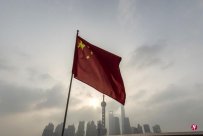BYD's expected profit increase in the third quarter will be as high as 365%. This Chinese electric vehicle manufacturer supported by Buffett is expected to avoid the supply chain constraints and seize the strong market demand.
Bloomberg reports that BYD, headquartered in Shenzhen on Monday (October 17), said that the net profit in the third quarter will be 5.5 billion yuan to 5.9 billion yuan (the same below, about 11.16 billion new newYuan) is the highest level in history.BYD benefits from producing batteries and semiconductors to avoid the interruption of the supply chain encountered by Tesla.
BYD said in the performance forecast that the company's new energy vehicles, including electric vehicles and hybrid vehicles, have maintained a strong growth, which continues to reach a record high.This "promotes the significant improvement of profitability," effectively alleviates the "profit pressure brought about by the rise in upstream raw material prices."
Earlier, BYD reported its strong first half of the results, and net profit increased to double to 3.6 billion yuan year -on -year to reach the high -end of the trailer range.However, the company still has some uncertainty after Buffett's Berkxia reduced its equity in the third quarter.
According to the announcement, BYD also expects that the total net profit in the first three quarters of this year is up to 9.5 billion yuan, a year -on -year increase of 289%.
BYD sold 537,164 electric vehicles and hybrid vehicles in the third quarter, a year -on -year increase of 197%.The total sales are easy to exceed Tesla, but the latter only sells pure electric vehicles.
The growth of electric vehicle demand is boosting the entire industry.The leading battery producer Ningde Times said last Monday (10th) that due to the strong sales of batteries in the automotive industry, net profit in the third quarter may increase by 200%year -on -year.Korean battery producer LG Energy Solution LTD. Report in the third quarter of profits and sales easily exceeded expectations.
BYD's stocks listed in Hong Kong fell 1%on Monday; this year fell about 28%.


